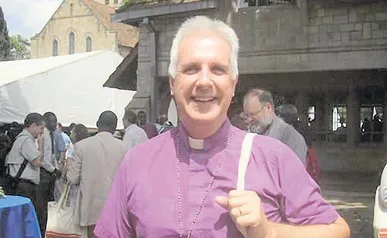
Canada: new confessing Anglicanism
Andrew Symes
Date posted: 1 Dec 2017
The Anglican Network in Canada (ANiC)
consists of over 70 congregations, which
over the past ten years have seceded from
the Anglican Church of Canada (ACoC), or
have begun as new plants.
The movement
began with
biblical-ly orthodox groups coming
together as
‘Anglican Essentials’ in the 1990s, to re-state
the basics of apostolic faith in a context of
increasing influence of secularist and liberal
thinking among the leadership of Anglican
and other mainline churches.
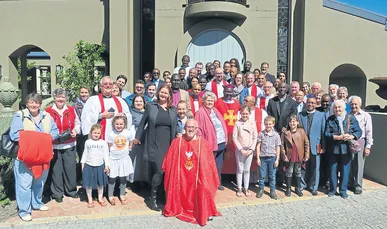
Just who is raising objections?
Chris Sugden
Date posted: 1 Oct 2017
Five bishops in the Anglican Church of Australia have asked their church lawyers whether bishops can take part in consecrating another bishop of a church which is not formally part of the Anglican Communion.
They raised objections to the consecration in May of the Rt Revd Andrew Lines of the Anglican Church in North America by the Archbishop of Sydney and bishops of Tasmania and Northwest Australia. These proceedings were set to dominate the meetings of the Church’s General Synod in September.

Alternative Synod?
Peter Sanlon
Date posted: 1 Aug 2017
One year ago the Daily Telegraph announced on its front page the new ‘Anglican Partnership Synod’.
Nicknamed a ‘shadow synod’, it marked a new form of partnership between Anglican churches in Kent and Sussex.
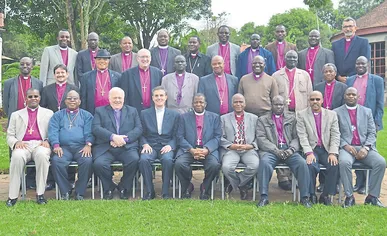
Bishops rebooted
Charles Raven
Date posted: 1 Jul 2017
Anglicans claim to be part of the Reformed Western catholic tradition and one of the most visible ways that continuity over the centuries is maintained is through episcopacy, which the English evangelical reformers of the 16th century quite deliberately retained in contrast to their continental counterparts.
Was that wise? In the present-day Anglican Provinces of the West, the claim to Reformed catholicity is looking ever more dubious as apostolic substance ebbs away. Moreover, disunity and doctrinal incoherence in the Anglican Communion has been an episcopally led phenomenon.
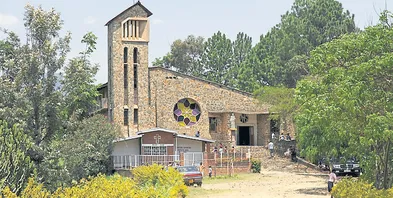
Rwanda: revival, genocide & recovery
Paul Perkin
Date posted: 1 Jun 2017
Rwanda is a land of contradictions. Arriving at Kigale one is immediately aware that this is quintessential Africa, and yet, ‘This is not Africa as I know it!’
One of the first hints is the airport inspection for plastic bags, banned in the country for environmental reasons. This beautiful, hilly, and in parts mountainous land is spotlessly clean – almost manicured.

Evangelical options

David Baker
Date posted: 1 Jul 2017
Let’s consider some possible futures for Anglican evangelicals concerned about the Church of England.
Option 1: Remain and resist
This is the strategy from Lee Gatiss of Church Society, Bishop Rod Thomas and many others. In this view, the battle is not lost. As I write, the next bishops’ report on marriage and sexuality is awaited. Southwell bishop Paul Williams – who spoke at a Proclamation Trust conference a few years ago – says: ‘Whatever some would like to claim, the Church of England is and remains faithful to the teaching of Scripture on these matters…’ The new document ‘will be deeply rooted in and faithful to Scripture,’ he claims.
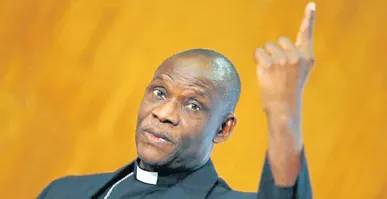
Looking outwards with the gospel
Chris Sugden
Date posted: 1 Apr 2017
In February, the Secretary General of the
Anglican
Communion,
a
Nigerian
Archbishop, Josiah Idowu-Fearon, addressed
the General Synod of the Church of England;
and Growth and Decline in the Anglican
Communion – 1980 to the Present, edited by
David Goodhew of Cranmer Hall, Durham,
was launched at a conference.
Archbishop Fearon clarified that the term
‘Anglican Communion’ referred to churches
which find their common roots through the
CofE and its tradition to the witness and mission of the apostolic church. ‘The very word
anglicana implies a living tradition of faith in
the gospel as this church has received it …
from Augustine of Canterbury … to renewal
in
the English Reformation and beyond.’
‘They feel they owe so much of their faith, in
human
terms,
to
the
faithful giving of
Christians in the CofE over the centuries.’

Mary Sumner’s leaky umbrella
Charles Raven
Date posted: 1 May 2017
The Mothers Union (MU) is one of the great success stories of the Anglican Communion.
Beginning in 1876 with Mary Sumner’s vision for Christian marriage and family life, the movement now numbers some 4 million members worldwide, with the largest concentration being in Africa.
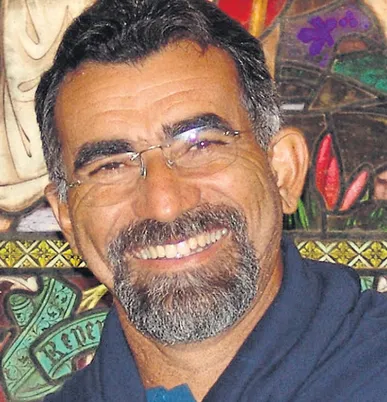
Anglican renewal in Brazil
Charles Raven
Date posted: 1 Mar 2017
Most Christians in the UK probably have
only the haziest idea of what Anglicanism
looks
like
in
South
America.
The
Edinburgh Missionary Conference of 1910
inhibited Protestant and Anglican missionary work in the continent, while the English
language has always been marginal, unlike
most
other
areas
of
the
Anglican
Communion where British influence was
much stronger.
This is a pity, because out of the continuing
crisis
in
the world-wide Anglican
Communion a reinvigorated and missionary
church is emerging in South America, in
spite of official persecution and rejection. In
fact the pattern of North America is being
repeated. Just as a new GAFCON-recognised
Province,
the Anglican Church
in North
America (ACNA), arose out of the aggressive
and assertive revisionism of the American
Episcopal Church (TEC) and the Anglican
Church of Canada, so in South America a
new orthodox Province is coming into being
as the Anglican Episcopal Church of Brazil
(IEAB) and various TEC satellite provinces
in central and northern South America
follow the
lead of their North American
counterparts.

GAFCON: ‘to free our churches’
Charles Raven
Date posted: 1 Jan 2017
GAFCON has confirmed the dates for its third international conference. Between 17-22 June 2018 it will return to Jerusalem, the venue of the first Global Anglican Future Conference in 2008 (from which the movement takes its name).
The GAFCON announcement explains that ‘The city stands as a constant reminder of the birth of the gospel and the movement’s determination to remain true to the teachings of our Lord and his Word’ and so, to appreciate the significance of the 2018 conference, it is worth recalling how it all began.

Caught between bishops and the blue sea
Gavin Mitchell
Date posted: 1 Feb 2017
The Anglican Church of the Province of Southern Africa, now known as the Anglican Church of Southern Africa (ACSA), is one of the provinces of the Anglican Communion that claims to walk the tightrope of the ‘middle path’ in the doctrinal and moral wars of the modern Communion.
ACSA believes that its hero status, from the leading role that it had in the anti-apartheid movement, gives it the new role in championing the indabas (discussions) which some see as essential to the future of Anglicanism. In reality, this means pressure from many bishops and lay leaders for ‘continuous conversations’ until sufficient minds are changed (for a Synod vote) to the new pan-sexual morality. If they can achieve this while convincing people in the pews that nothing is really changing and after all ‘this is what Jesus would want us to do’, all the better.